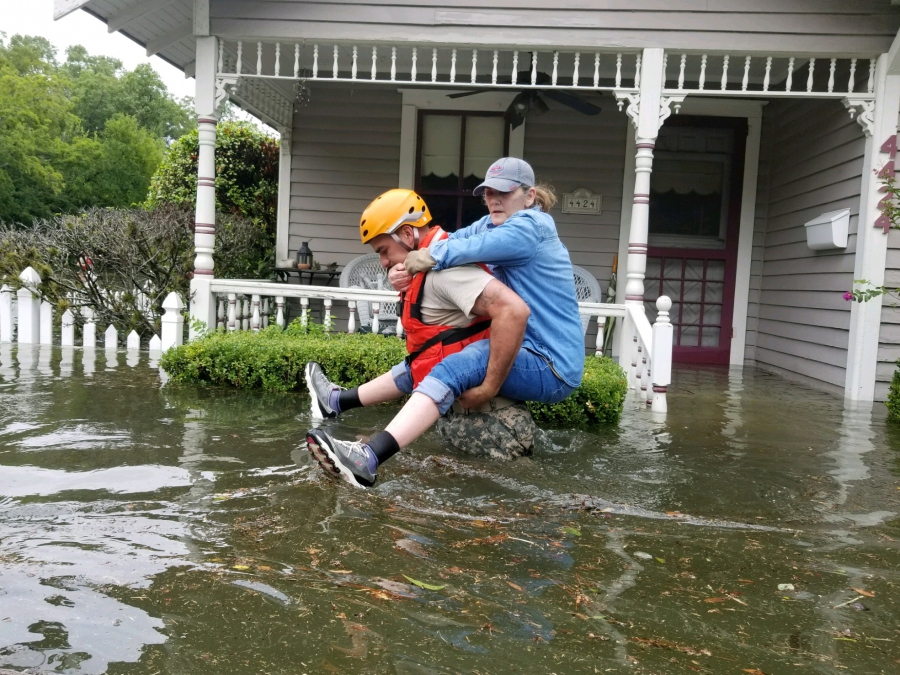Module 1: Part A Assignment
Clay Shirky – How Social Media Can Make History
Whereas the phone gave us the one-to-one pattern. Television, radio, magazines, books, gave us the one-to-many pattern. The Internet gives us the many-to-many pattern.

A Texas National Guard soldier carries a woman on his back as they conduct rescue operations in flooded areas around Houston. Credit: Lt. Zachary West, 100th MPAD/Texas Military Department/Handout via Reuters
Last week hundreds of stranded Texas residents sought help by posting on Facebook and Twitter. They tweeted their locations during the flood to emergency officials. Rescue missions were organized through existing and newly created Facebook groups. Event pictures and videos were posted which allowed the whole world to see the reality that Houston was facing as it was happening. Suddenly you have millions of Twitter users acting as producers.
The really crazy change is here: the fact that former consumers are now producers.
The development of the internet is amazing. To think that the last time we had a major hurricane was in 2005 and Twitter did not exist at that time. The people in Houston found dialing 911 was not the solution to get help. They used Facebook, Twitter, and Nextdoor for help. Officials did urge people to use all sources because as much as social media can help, it can also hurt as well. There have been reports of year old pictures and rumors being posted and spreading just a fast. So the need for mainstream news sources and weather reports will still always be important.
We have a helicopter on standby in case we need to rescue @stucknut from the roof of his house. #houstonflood
— Arthur Gonzarelli (@TheGonzoInSA) June 16, 2015
Dog rescue 413 Speights Loop Rd Hankamer TX needs help! #HoustonStrong #houstonflood #HarveyStorm #HoustonFloods #MondayMotivation pic.twitter.com/0EdssTlDWj
— Candelita * Boricua (@sheilaepr) August 28, 2017
As this tragic flooding event continues, social media platforms from Reddit, Twitter, to Instagram have been flooded with requests for rescues. Nextdoor, which is a popular social media site for neighbors said it has seen an unusual amount of users in the Houston area. Although pictures and video footage can not fully describe these events, we will have much more information to react to these tragic situations. Our media landscape will not only continue to change history, but will create many more opportunities for population dialogue where people can look back and learn from past events. There will be more exposure of personal narratives. I believe it is these trends Clay Shirky highlights in his TED Talk that will continue to lead to more opportunities and educational growth in our country.
